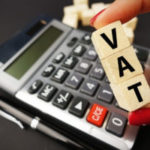Rob McCann, Director, The VAT People, gives his tips for navigating the complexities of VAT for housing developers.
Businesses of all sizes across a broad spectrum of industries have long struggled to grasp the complexities of VAT – something that consistently results in costly mistakes being made across the board. Housing developers are unfortunately not immune to this, and a widespread lack of understanding of how VAT impacts their day-to-day operations often results in regulations not being adhered to, and reliefs not being recognised.
We regularly work with housing developers that have failed to recognise areas in which potential savings could have been made – and this is very often the result of firms burying their head in the sand when it comes to VAT.
Knowledge of VAT among property developers is generally mixed. Some developers are well aware of the general VAT issues surrounding the sector, although they will often still require advice on the nuances of each particular scheme that applies to them.
On the other hand, some developers make inaccurate assumptions about their VAT responsibilities, which is dangerous given the often large numbers involved in such projects.
In this guide, we will provide insights on VAT for housing developers, including information on the basic factors that they need to be aware of, along with mistakes that are commonly made in this area.
VAT registration for housing developers
Before establishing ways to overcome the most common pitfalls that housing developers regularly fall into when it comes to VAT, it is important to identify the basic facts.
Property developers must register for VAT with HM Revenue & Customs (HMRC) when their taxable turnover is more than £83,000. In order to calculate taxable turnover, you should add up the total value of everything you sell in a 12-month period that does not fall into the following categories:
- Exempt from VAT
- Outside the scope of VAT
VAT must not be charged on goods and services that are exempt. It is also important to note that VAT cannot be reclaimed on any goods and services that have been administered in relation to exempt business activities.
Common pitfalls
The two most common mistakes that we see property developers make when it comes to VAT are:
- Failure to declare VAT on a property sale, when VAT is, in fact, due
- Failure to consider the negative VAT recovery impact of selling or renting property on a VAT-exempt basis
In addition, it is common for housing developers to fail to consider VAT at the appropriate time. Very often, VAT is considered at the last minute (if at all), sometimes when it is too late to plan to reduce the VAT cost of a particular project.
It is vital for property developers to consider the VAT impact for each individual project at the earliest stage possible to prevent incurring higher costs than necessary at a time when planning ahead is crucial.
Opportunities for cost savings
There are numerous VAT reliefs that apply to property developers, most of which apply when new residential properties are being created. Of these, several are often missed or overlooked by housing professionals who may not be in the know about what is available to them.
There is a reduced rate of VAT, which is applicable to qualifying services provided to contractors in relation to projects that involve a change in the number of single-household dwellings in a building, or a change in the use of a residential building. For example, the 5% reduced rate applies if:
- Self-contained dwellings are created from non-residential buildings
- A house is converted into a flat (or vice versa)
The reduced rate of VAT also applies to work to a property that has been empty for two years at the time that the work commences.
In relation to commercial property, in order to recover the VAT on related expenditure, it is often advantageous for a developer to charge VAT on the rent or sale income that it will generate from the developed property. However, this will often require the developer to formally “opt to tax” the property, a step that is often missed.
Potential sanctions
HMRC will often review the VAT treatment of large property transactions, and also review large claims for input tax that may be submitted by property developers. In order to prepare for HMRC investigations, it is important that property developers take advice in relation to their VAT liability for transactions and the VAT recovery position on large purchases.
Property developers are advised to seek out training on all aspects of VAT in order to ensure they are compliant with requirements that are relevant to their specific circumstances. Training will help to explain the complex rules surrounding property development projects and ensure that those who need to know about these regulations are abreast of the rules at all times.

